
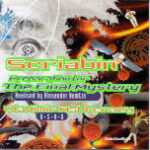
Around 1903 Scriabin first conceived the idea of Mysterium, a seven day and seven night spritual/artistic experience incorporating music, poetry, visual effects, dancing, and chanting.
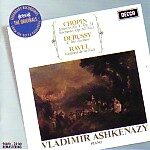
It’s good that Decca reissues this splendid 1965 Vladimir Ashkenazy recital in full (the Chopin and Ravel selections previously appeared in Philips’ deleted Great Pianists
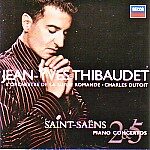
These performances aren’t perfect, but they are mostly very good. The Second Concerto, though, is entirely stunning, with a central scherzo that’s a model of

Here, in a lavishly Hollywood-worthy (or Franco Zeffirelli-worthy) production by set and costume designer Giovanni Agostinucci, is a star-turn Traviata that will please almost everyone.

This, Andrea Bocelli’s sixth complete opera recording, is a failure. It was recorded in 2002–apparently Decca is doling out what they see as “the goodies”–working

Danielle de Niese, who had her own TV show in Los Angeles when she was still a teenager, has grown into a lovely, engaging, gifted

Georg Solti made three recordings of Mahler’s Fifth. The first, with Chicago, although very strangely multi-miked, was fast and exciting. The second, digital version with

Decca’s promotional copy notwithstanding, it’s The Sleeping Beauty and not Swan Lake that is “Tchaikovsky’s Greatest Ballet”. The composer’s first balletic effort draws liberally on
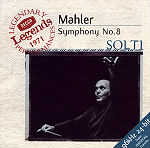
Georg Solti’s Mahler Eighth always has stood high on the list of recommendable versions, even for people who don’t normally warm to his nervy, high-powered
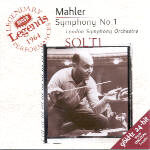
Overall, Georg Solti’s London Symphony recordings of Mahler Symphonies Nos. 1, 2, and 9 stand as his finest contributions to the composer’s discography. This 1964
![]()
